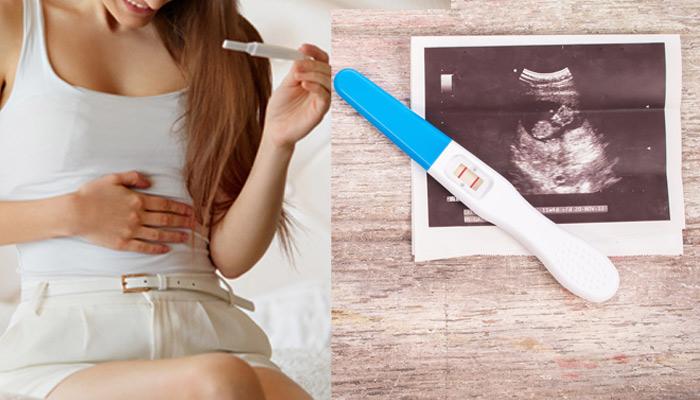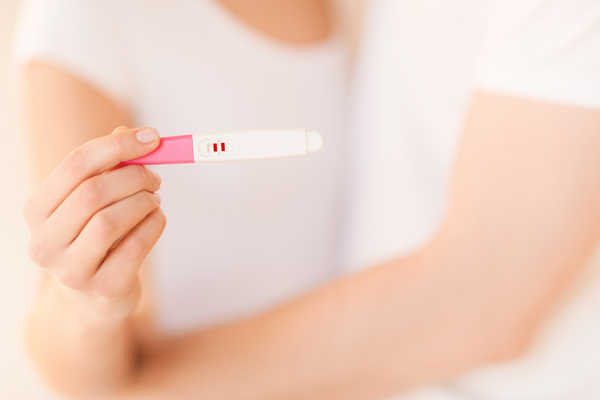


Pregnancy and conception come with their own set of challenges and tribulations, one of it is deciding and knowing when to take the pregnancy test. While a false negative test result when you’re expecting might dampen your spirits, but a false positive test when you least expect it might send you into nervous jitters. Hence, it is absolutely necessary to analyse when is the perfect time to take the test and how.
Recommended Read: How To Increase Chances Of Getting Pregnant Naturally? Here Are 15 Best Ways!

Our female body is designed in such a way that as soon as the fertilised egg gets attached to the uterine walls and linings, a special type of hormone called HCG (Human Chorionic Gonadotrophin) forms a part of our urine and is secreted every time we pee. The home pregnancy test kits basically show you whether or not HCG is present in your urine.
While most people take the home pregnancy test, many prefer going to the doctor to get the results. In most cases, a gynaecologist would ask you to go for a blood test to check for pregnancy as it is considered to be more accurate.
Now, many people don’t know the correct answer to this and end up taking the tests at a time when the results are bound to be incorrect. Hence, read the details carefully to know when it is the best time to take the test.
If you have not been expecting a pregnancy but have regular intercourse and face these symptoms, it is time to take the test.
You May Also Like: Workout During Periods: Why And What All Exercises You Can Do During Your Menstruation?
These days more and more women take the home pregnancy test to ascertain whether they’re pregnant or not. Not only is it discreet and can be done anywhere but also gives an accurate result if taken at the right time. And the best part is that the results are in your hand within a few minutes of taking the test.
In rare cases, pregnancy tests might give a positive result but are not accurate. The reason behind this could be many.
Don't Miss: Is There A Right Biological Age For Women To Get Pregnant? Here's The Answer!
There are many reasons why you might get a false negative pregnancy test result. Some of them are:
There is no doubt about the fact that blood tests are much more accurate than urine tests. Blood tests can detect pregnancy or HCG levels in your blood sample within 6-10 days of conception. However, the results take a day or two’s time to come.
It is said that the best time to take a pregnancy test at home is morning. It should be the first thing to do in the morning when you wake up with the first urine in the morning. It is also recommended not to pee at night and then do the test as soon as you get up in the morning. Not going to the washroom at night actually allows the HCG level to be higher and easily detected. Although doing the tests in the afternoon has also shown positive results, but it is recommended to do test the first thing after you get up in the morning.
For the most accurate results, it is recommended to wait until the week after you have missed your periods. Or else, if you don’t want to wait until you miss your monthly cycle, do the test after waiting for at least one to two weeks after you have had sex. If you are pregnant, your body would take some time to detect the levels of HCG. And this usually takes 7 to 12 days after positive implantation of an egg.
In case you are having irregular periods, start counting 36 days from the last start of your periods or four weeks from the last time you had sex. In case you are pregnant, this is the best time and enough where your HCG levels would be detected.
Recommended Read: Pregnancy Risks After Age 30, From Low Fertility To Child Birth Complications
If you are having frequent unprotected intercourse and feel that you might be pregnant, opt for a home urine test and take it up with your doctor next, if it comes positive. Good luck!